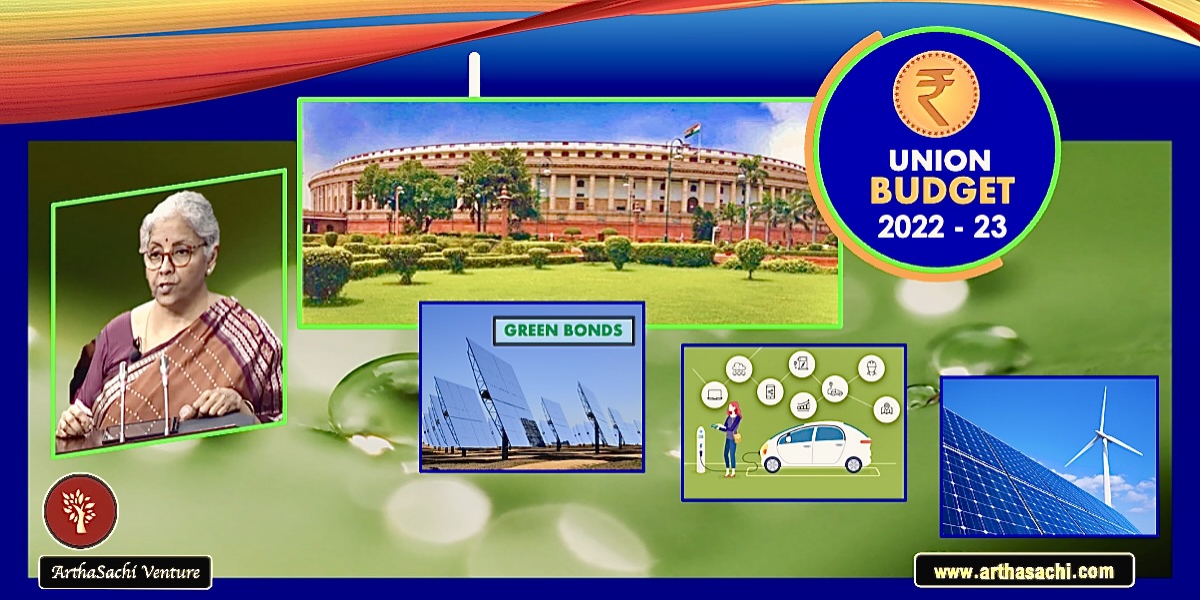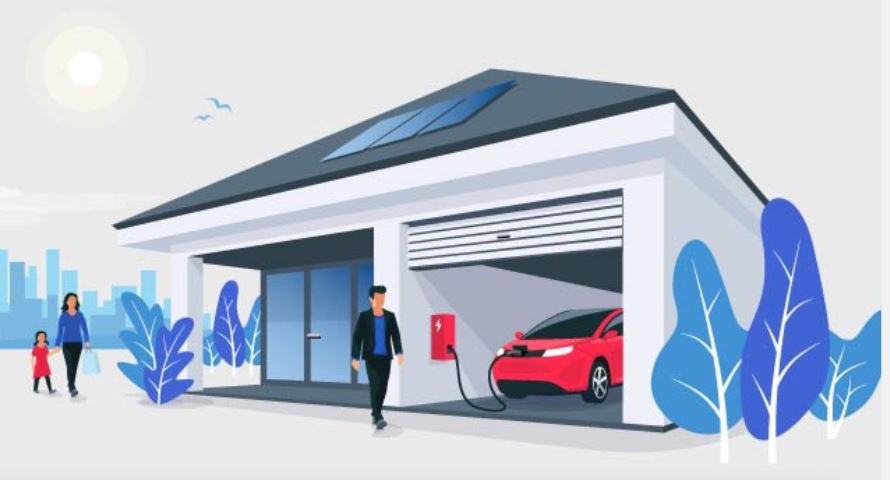
Budget 2022: Energy Transaction, address Climate change & Reduce Carbon footprint important pillar
The budget proposes the strategy roadmap to generate huge employment opportunities and a strategic action plan which will take India to a sustainable development path.
The budget proposes the strategy roadmap to generate huge employment opportunities and a strategic action plan which will take India to a sustainable development path through Energy Transaction, addressing Climate change and reducing Carbon footprint. This budget covers several near-term and long-term actions plans, some of the important ones are covered below.
Solar Power

To facilitate domestic manufacturing and installing solar capacity in India, The budget set an ambitious goal of 280 GW of installed solar capacity by 2030. The Budget set aside an additional allocation of Rs 19,500 crore of Production linked incentives for manufacturing of high efficiency solar modules [ polysilicon to solar PV modules ].
Green Bonds
In her Budget Speech for union budget 2022-23, Indian Finance Minister Nirmala Sitharaman has given special emphasis on Green Energy and funding its requirement through ‘Green Bonds’ for creating a ‘Green Infrastructure’.
As a part of the government’s overall market borrowings, sovereign Green Bonds will be issued for mobilizing resources for green infrastructure. The proceeds will be deployed in public sector projects which help in reducing the carbon intensity of the economy or carbon footprint.
Battery Swapping Policy

In the budget, a special policy is designed for Battery Swapping. It covers setting up charging stations at scale. The battery swapping policy will be brought out and standards will be formulated interoperability. The private sector can play a major role in this sector as they will be encouraged to develop sustainable and innovative business models for ‘Battery or Energy as a Service.’ It will bring a new level of efficiency in the EV eco-system as a large number of electric vehicles will upgrade towards new batteries with this swapping policy. It will reshape the complete motor vehicle Industry in India. The entire Electric Vehicle Industry will move towards efficient charging of vehicles, which means faster charging, more mileage per charging due to substitution of superior quality battery and charging station availability at scale.
In the long run it will boost fresh investment in the EV space, help reduce domestic fuel consumption, dependency on crude oil import, fiscal deficit, and provide India with the tools to push towards its goals and commitment to reduce carbon footprint.
Data Centres [Infrastructure Status]
The Harmonized infrastructure list has been updated with additions of Data Centres and Energy Storage Systems including a dense charging infrastructure and grid-scale battery system in this budget. This will facilitate funding options and credit availability for many digital infrastructures and clear energy storage.
Other Highlights
- Transition to Circular Economy to help in productivity enhancement as well as creating new businesses and employment generation.
- Promoting chemical-free natural farming starting with farmers lands close to river Ganga.
- Five to seven per cent biomass pellets will be co-fired in thermal power plants resulting in carbon dioxide savings of 38 MMT annually, providing an extra source of income to farmers, and enhancing job opportunities among locals.
- Energy efficiency and savings measures will be promoted in large commercial buildings through the Energy Service Company (ESCO) business model.
- The policies and required legislative changes will be brought in to promote agro forestry and private forestry. It’s a landmark change to promote farming in the forefront of India’s growth journey.
- Four pilot projects for coal gasification and conversion of coal into chemical also proposed in the budget.
Top News
Other News
MARKETS
WEALTH
ECONOMICS
START UP
TECHNOLOGY
BUSINESS
Alliances and Partners

Arthasachi Venture Footprints


















